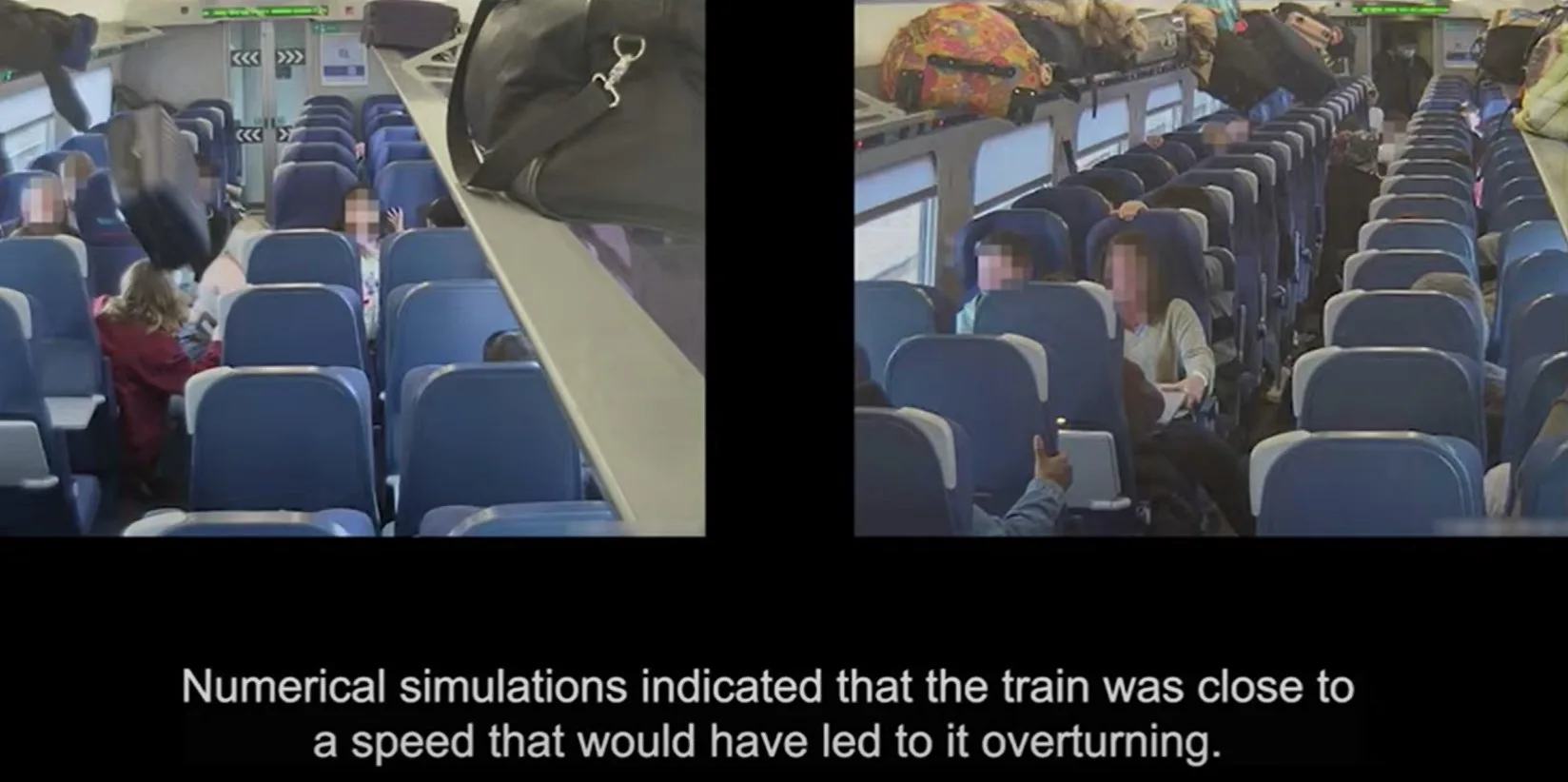An incident in which an over speeding training near Peterborough caused luggage to fall from overhead racks and passengers thrown from their seat, could have been “much worse” says a rail regulator report.
The Rail Accident Investigation Branch (RAIB) has released its finding into the incident at Spital Junction, Peterborough, in April 2022.
Andrew Hall, Chief Inspector of Rail Accidents said: “The over speeding incident at Spital junction in April 2022, led to a number of minor injuries. Some passengers were thrown from their seats and some hit by luggage falling from overhead racks.
“However, the outcome could have been much worse, as analysis showed the train was close to overturning.”
He said that a similar event occurred at the same junction in May 2023, “albeit a little slower and involving a train operated by a different train operating company”.
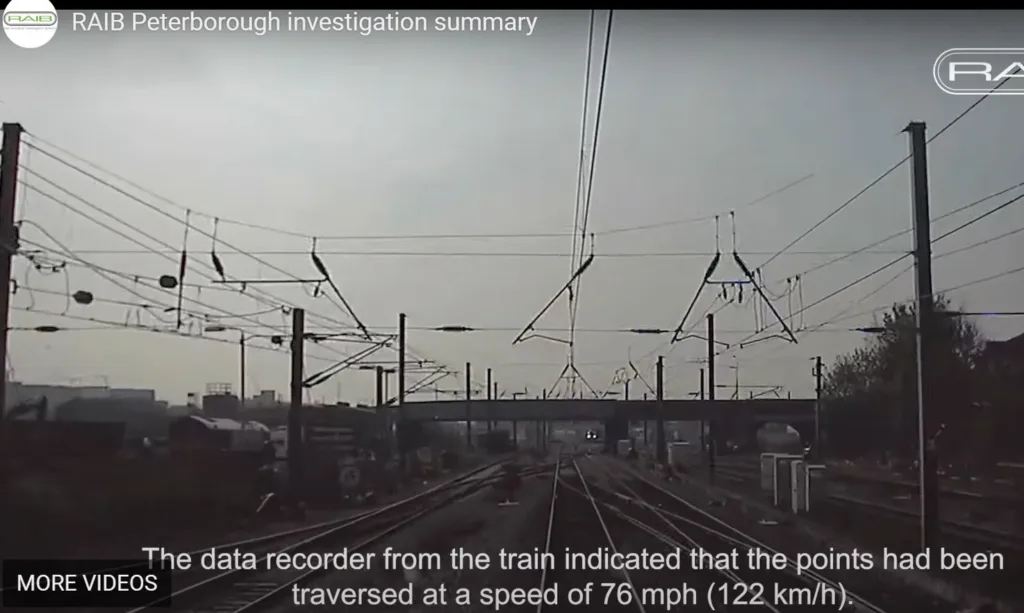
Mr Hall said: “As designed, the signal protecting the junction cleared from red to green and displayed an indicator showing which way the junction was set as the train approached.
“The risk associated with a train then accelerating to an excessive speed over the associated diverging junction, when the driver has an expectation of taking a through route with a much higher permissible speed, had previously been illustrated when a light locomotive derailed in similar circumstances at Bletchley in February 2012.
“The risk associated with particular junctions and drivers, varies with infrastructure configuration and driver expectation.
“It is therefore absolutely necessary that Network Rail and train operating companies work together to mutually understand and sufficiently mitigate risks of this type at specific locations, accounting for the rolling stock and operations involved.”
Summary by RAIB of incident
At around 10:20 hrs on 17 April 2022, the 08:20 hrs Lumo service from Newcastle to London King’s Cross, passed over three sets of points at Spital Junction at the northern approach to Peterborough station at excessive speed.
The maximum permitted speed over the junction is initially 30 mph (48 km/h) reducing to 25 mph (40 km/h).
The data recorder from the train indicated that the points had been traversed at a speed of 76 mph (122 km/h).
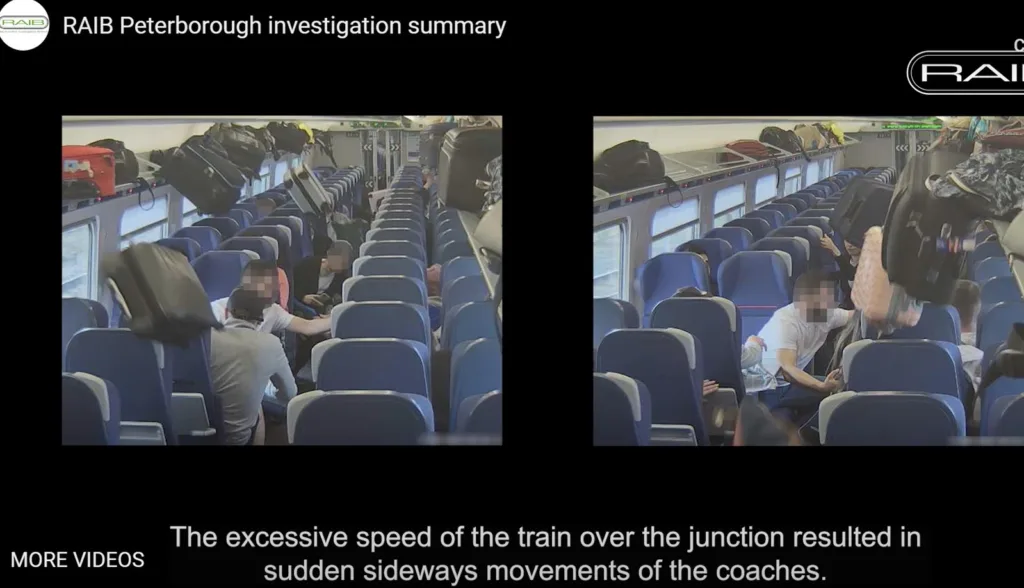
The speed of the train over the junction resulted in sudden sideways movements of the coaches. This led to some passengers being thrown from their seats and luggage falling from the overhead storage, with some passengers receiving minor injuries.
Although the train did not derail, and no damage was caused, post-incident analysis has indicated that the train was close to a speed that would have led to it overturning, and it was likely that some of the wheels of the vehicles lifted off the rails.
RAIB’s investigation found that the over speeding was caused by the driver of train 1Y80 not reacting appropriately to the signal indication they had received on approach to the junction.
This signal indication was a warning that the train was to take a diverging route ahead which had a lower speed limit than the straight-ahead route which they were expecting to take.
The driver’s awareness of the signal conditions that could be presented on approach to this junction and their training were not sufficient to overcome this expectation.
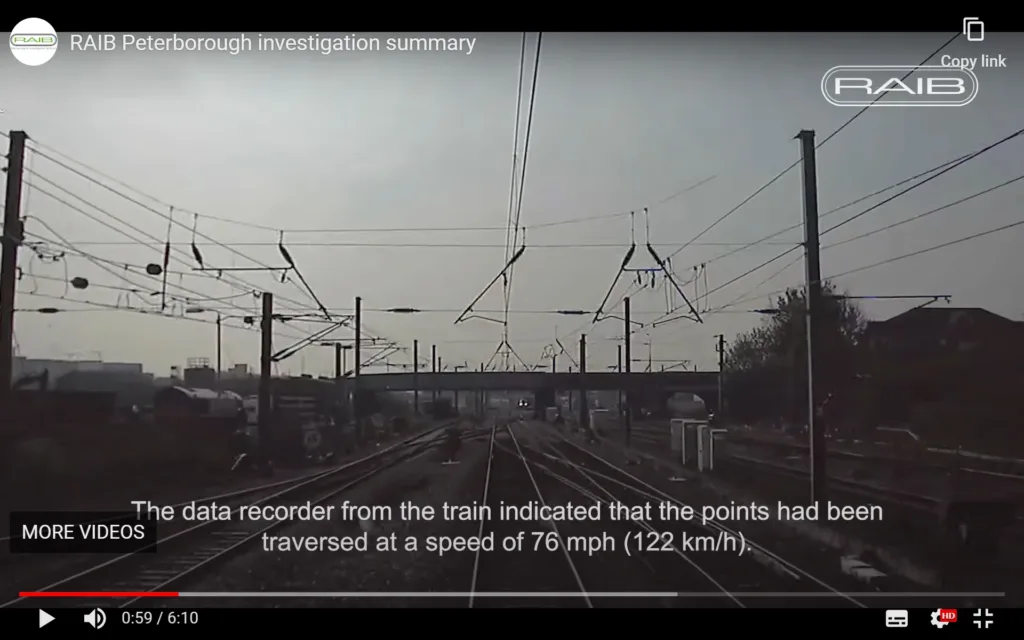
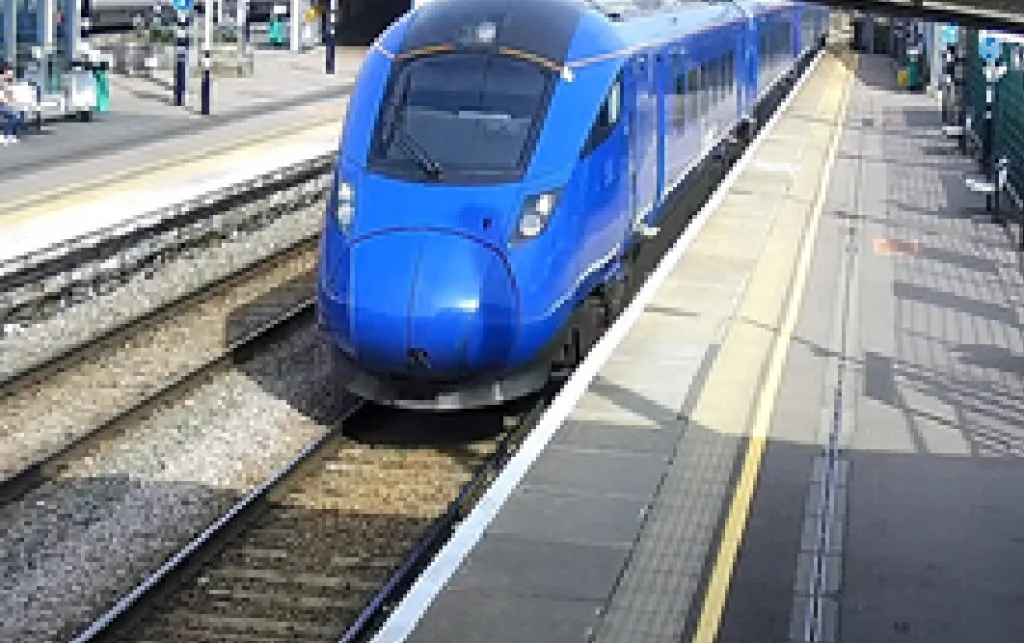
RAIB found that Lumo had not assessed and controlled the risk associated with trains being unexpectedly routed on a slower, diverging route at this location and that it had not adequately trained the driver to prepare for this eventuality.
Network Rail had also neither assessed nor effectively controlled the risk of over speeding at locations where there is a long distance between the protecting signal and the junction itself. The investigation also found that half of the passenger injuries were as a result of falling luggage that had been stowed in the overhead luggage racks.
Recommendations
RAIB has made four recommendations.
The first recommendation is for Lumo to review its processes to ensure that it effectively controls the risk of over speeding at diverging junctions.
The second recommendation asks Network Rail to identify junctions where there is a greater potential for over speeding to occur and to work with operators to share information on the associated risks.
The third recommendation asks Network Rail and train operators to consider and implement risk control measures at those junctions identified in the second recommendation.
The fourth recommendation is intended to ensure that Lumo minimises the risks from falling luggage on its services.
RAIB has also identified two learning points. These relate to the need for drivers to maintain alertness when approaching junction signals and that train operator emergency plans should specifically include processes to deal with the aftermath of over speeding incidents.
May 2023 over speeding incident
At around 13:00 hrs on 4 May 2023, another over speeding incident occurred at the same location involving a Grand Central service.
As a result, RAIB issued urgent safety advice to the industry and announced its intention to investigate this second incident.

